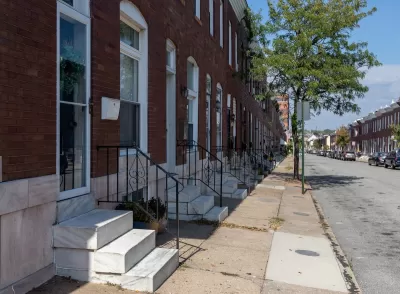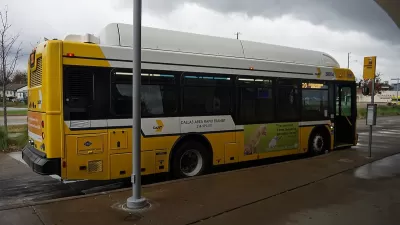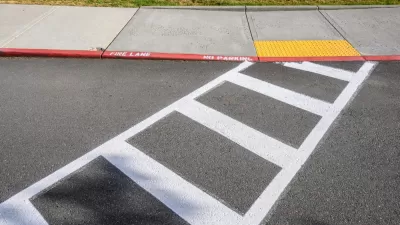The plan is the result of a lawsuit brought by residents who say the city has failed to maintain safe, accessible sidewalks and streets for people with disabilities.

Baltimore will spend at least $44 million on accessibility upgrades for city sidewalks following a lawsuit by three residents.
As Mark Reutter explains in Baltimore Brew, “Under the agreement, which will go before the BOE for approval on November 20, the city will allocate at least $8 million in state Highway User Revenues to install and upgrade curb ramps and walkways to ADA standards in fiscal 2025, followed by a minimum of $12 million annually between 2026 and 2028.” Bringing all of the city’s sidewalks and streets in compliance with ADA would cost $657 million in 2019 dollars, based on a study commissioned by the Department of Transportation.
A 2019 study found that just over 1 percent of Baltimore curb ramps were ADA-compliant, and the city had 3,000 miles of non-compliant sidewalks. The city has pledged to install 533 curb ramps by June 30, 2025 and fix or install more than 2,000 more in the next three years.
According to Reutter, “The Scott administration further promises to appoint an ADA coordinator to implement a sidewalk inspection program, establish a maintenance program to clear vegetation and clutter on sidewalks ‘on an annual basis’ and communicate with the public about the importance of accessibility on public rights of way.”
FULL STORY: Baltimore pledges to spend $44 million on ADA-compliant ramps and sidewalks

Maui's Vacation Rental Debate Turns Ugly
Verbal attacks, misinformation campaigns and fistfights plague a high-stakes debate to convert thousands of vacation rentals into long-term housing.

Planetizen Federal Action Tracker
A weekly monitor of how Trump’s orders and actions are impacting planners and planning in America.

In Urban Planning, AI Prompting Could be the New Design Thinking
Creativity has long been key to great urban design. What if we see AI as our new creative partner?

King County Supportive Housing Program Offers Hope for Unhoused Residents
The county is taking a ‘Housing First’ approach that prioritizes getting people into housing, then offering wraparound supportive services.

Researchers Use AI to Get Clearer Picture of US Housing
Analysts are using artificial intelligence to supercharge their research by allowing them to comb through data faster. Though these AI tools can be error prone, they save time and housing researchers are optimistic about the future.

Making Shared Micromobility More Inclusive
Cities and shared mobility system operators can do more to include people with disabilities in planning and operations, per a new report.
Urban Design for Planners 1: Software Tools
This six-course series explores essential urban design concepts using open source software and equips planners with the tools they need to participate fully in the urban design process.
Planning for Universal Design
Learn the tools for implementing Universal Design in planning regulations.
planning NEXT
Appalachian Highlands Housing Partners
Mpact (founded as Rail~Volution)
City of Camden Redevelopment Agency
City of Astoria
City of Portland
City of Laramie





























